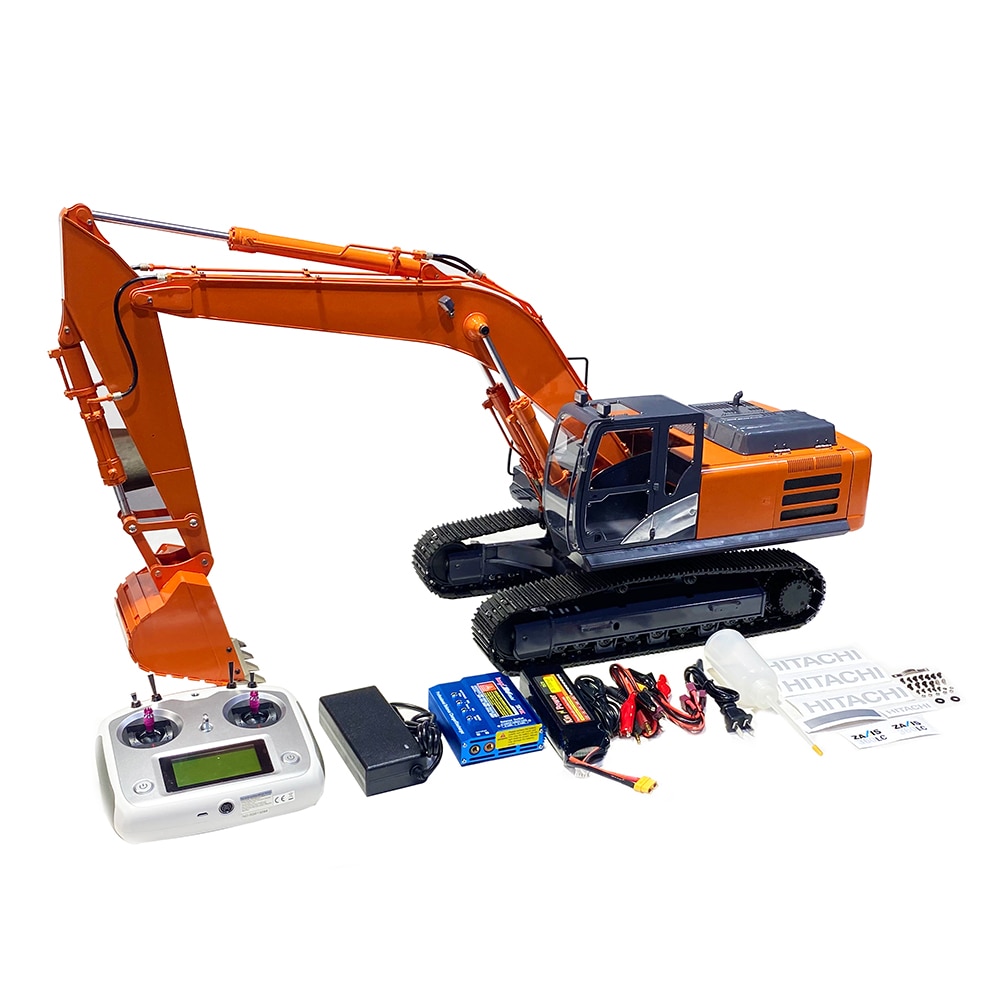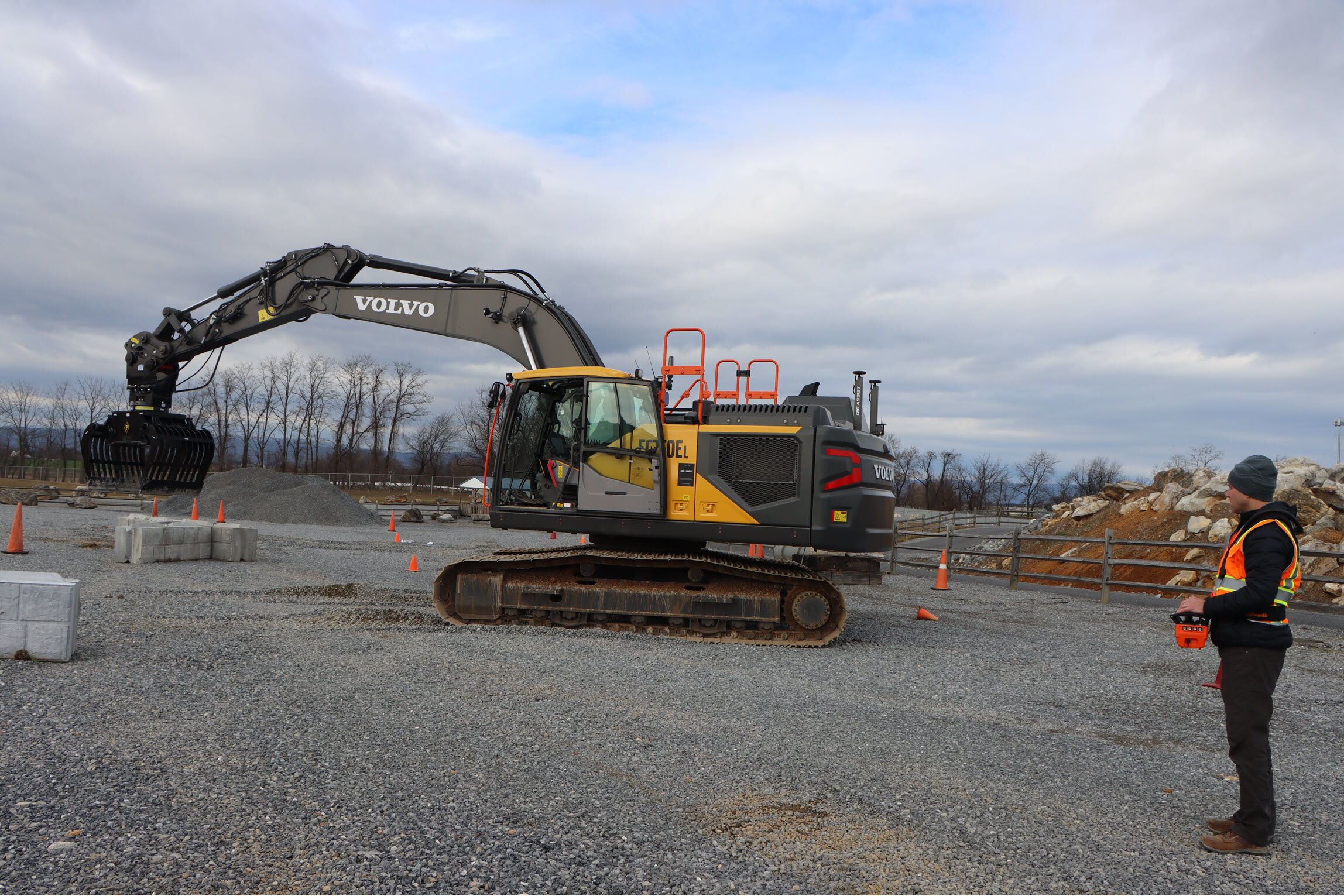Discover the Value of Excavator in Modern Building Projects
Excavators are important devices in contemporary construction tasks. Their adaptability permits them to execute a large range of jobs, from digging and grading to demolition and site prep work. Advanced attributes, such as hydraulic add-ons and GPS, improve their capacities and efficiency on task websites. As the industry evolves, the importance of excavators expands much more. Understanding their function can expose insights into the future of building and construction practices. What exists ahead for these devices?
The Adaptability of Excavators in Different Projects
Although excavators are frequently related to large building jobs, their flexibility permits them to be utilized in a large range of applications, from residential landscaping to utility upkeep. In city setups, excavators can browse limited spaces to dig foundations for homes or install water drainage systems. Their capacity to execute delicate jobs makes them perfect for landscaping projects, where they can dig deep into for fish ponds or plant trees. In addition, excavators play an important role in utility upkeep, effectively excavating trenches for pipelines or cords without disrupting surrounding areas. In farming applications, they help in land cleaning and soil prep work. Their flexibility enables them to be geared up with different attachments, improving their performance throughout different tasks. This diverse nature of excavators not just improves different construction procedures however also shows their important duty in modern framework development and upkeep.
Key Attributes and Kinds of Excavators
The conversation on crucial features and sorts of excavators highlights the necessary attributes that make these makers indispensable in building. Numerous excavator kinds, each made for specific tasks, demonstrate their adaptability and effectiveness throughout different applications. rc excavator. Comprehending these features and categories is vital for enhancing their usage in contemporary building jobs
Excavator Enters Introduction
Excavators play a crucial role in contemporary building, supplying versatility and efficiency throughout different tasks. These hefty machinery systems come in numerous kinds, each tailored for particular applications. One of the most typical types consist of crawler excavators, known for their stability on uneven terrain, and wheeled excavators, which supply higher flexibility on paved surface areas. Mini excavators are favored for small-scale jobs and limited rooms, while long-reach excavators are made for deep excavating. In addition, there are customized excavators, such as hydraulic excavators, which boost power and accuracy. Each type features one-of-a-kind capacities, making them crucial for jobs ranging from digging and grading to demolition and material handling. Recognizing these variations permits building experts to choose the ideal excavator for their task requires.
Secret Features Explained
Recognizing the crucial attributes of excavators boosts their efficient application in building tasks. Excavators are defined by their effective hydraulic systems, which offer the required pressure for excavating, lifting, and moving products. Their articulated arms enable a large range of motion, promoting accurate operations in restricted rooms. Furthermore, the selection of add-ons, such as pails, grapples, and augers, expands their versatility to satisfy various job requirements. The size and weight of excavators also add to their stability and ability to move on different surfaces. Moreover, improvements in technology have actually caused the integration of general practitioner and automation, enhancing precision and performance in excavation tasks. These features collectively place excavators as essential devices in modern construction.
Applications in Construction
Transforming building websites, excavators play an essential function throughout different applications, varying from household building jobs to large-scale facilities advancements. These versatile makers are geared up for tasks such as digging structures, trenching for energies, and site grading. Various sorts of excavators, including spider, rolled, and mini excavators, supply specific advantages tailored to the job needs. Spider excavators succeed in harsh surfaces, while rolled excavators supply mobility on paved surface areas. Small excavators are perfect for restricted rooms, making them popular in metropolitan setups. The effectiveness and power of excavators substantially quicken construction processes, ensuring timely job conclusion. Their adaptability further improves their relevance, allowing construction teams to tackle a varied selection of challenges effectively.
Enhancing Effectiveness and Performance on Task Sites
Taking full advantage of performance and productivity on task sites is a vital purpose in contemporary building. Excavators play a pivotal role in attaining this objective by enhancing different jobs. Their capacity to do several features-- such as excavating, lifting, and grading-- minimizes the requirement for additional tools, consequently saving time and resources.Moreover, excavators enhance operations by allowing for faster conclusion of jobs. With advanced functions like hydraulic accessories and GPS innovation, they can execute specific operations that decrease errors and revamp. This precision not just enhances the top quality of work however also enhances product usage, contributing to cost savings.The versatility of excavators enables them to adjust to different website problems, ensuring that tasks proceed smoothly regardless of obstacles. By integrating excavators into building and construction processes, teams can greatly enhance their overall efficiency, bring about timely task completion and raised earnings.
Safety And Security Benefits of Using Excavators
Excavators significantly improve safety and security on building and construction websites via improved driver visibility and lowered manual labor threats. By giving drivers with a clear view of their environments, excavators aid to avoid mishaps and injuries. In addition, the machinery decreases the need for workers to take part in unsafe manual tasks, better advertising a more secure workplace.
Enhanced Operator Visibility
Construction websites can be disorderly and filled with possible hazards, improved operator exposure plays a vital role in making certain safety when using excavators. Modern excavators are developed with big, unhampered windows and strategically put mirrors, permitting operators to maintain a clear sight of their surroundings (rc find out excavator). This boosted exposure is essential for identifying pedestrians, various other equipment, and various barriers, significantly reducing the threat of mishaps. In addition, numerous excavators include advanced technology, such as video cameras and sensing units, to give drivers with added perspectives, better boosting awareness. The capability to see even more clearly not only aids in efficient procedure but also cultivates a much safer workplace, making it simpler for operators to browse see this intricate construction websites without endangering security requirements
Decreased Manual Work Risks
When hands-on labor is lowered through the usage of excavators, numerous safety and security benefits emerge, markedly improving the wellness of building and construction employees. Excavators minimize the physical pressure related to heavy training and repetitive tasks, effectively reducing the danger of bone and joint injuries. By automating procedures such as excavating, grading, and moving products, they allow employees to keep a safer range from prospective threats. Additionally, excavators are furnished with innovative safety features, such as rollover protection systems and enhanced driver comfort designs, which even more secure personnel on site. The result is a significant decrease in work environment mishaps and injuries, leading to boosted efficiency and morale amongst building and construction groups. Inevitably, the fostering of excavators adds to a much safer and more efficient construction atmosphere.
Excavators in Earthmoving and Website Preparation
In modern-day building and construction, a substantial part of earthmoving and site preparation tasks depends on the effectiveness and flexibility of excavators. These devices are developed to handle various dirt kinds and terrain, making them vital for rating, digging, and trenching activities. Their hydraulic arms can be outfitted with various add-ons, such as containers and augers, enabling drivers to tailor their method based upon certain task requirements.Excavators stand out at relocating large volumes of planet promptly and successfully, which accelerates the overall building and construction timeline. They can navigate limited areas and challenging websites where conventional tools may battle, boosting performance. Furthermore, the precision of excavators assurances that site prep work sticks to rigorous specs, lessening the threat of errors that might cause expensive rework.
The Duty of Excavators in Demolition Tasks
Excavators play an essential duty in demolition tasks, as they have the power and dexterity needed to take down structures successfully. Furnished with numerous accessories such as hydraulic breakers, shears, and grapples, these devices can adapt to various demolition demands, whether for little buildings or big commercial sites. Their adaptability makes it possible for drivers to tackle intricate jobs while maintaining safety and precision.In addition to their demolition abilities, excavators facilitate debris removal, guaranteeing that work websites remain orderly and risk-free. By damaging down structures right into manageable items, they permit streamlined clearing up and recycling of materials, straightening with modern sustainability efforts.Moreover, excavators can access Click This Link tight spaces and navigate uneven terrain, making them indispensable in metropolitan demolition projects. Generally, their robust design and multifunctionality make excavators a crucial possession in the demolition stage of building, contributing substantially to job timelines and efficiency.


Future Trends in Excavator Modern Technology and Use
As the building market progresses, developments in excavator modern technology are positioned to change their use and efficiency markedly. One considerable trend is the assimilation of automation and expert system, allowing excavators to run with very little human treatment. This shift will certainly improve accuracy in tasks such as grading and trenching, reducing human mistake and raising productivity.Additionally, the increase of hybrid and electric excavators is forming a much more lasting building and construction atmosphere, lowering carbon exhausts and fuel costs. Enhanced telematics systems are also emerging, allowing real-time monitoring of maker performance and maintenance needs, which can cause much better functional performance and longer equipment lifespan.Moreover, advancements in attachment innovation are increasing the versatility of excavators, permitting them to perform a wider series of jobs. The mix of these trends demonstrates a future where excavators are smarter, greener, and a lot more adaptable, ultimately improving building and construction project dynamics.
Frequently Asked Inquiries
Just How Do Excavators Contrast to Other Building And Construction Equipment?
Excavators, identified by their convenience and power, master digging and earthmoving contrasted to various other equipment. Their ability to execute different tasks, including training and demolition, makes them essential in building and construction projects, improving total efficiency.

What Is the Average Lifespan of an Excavator?
The average life expectancy of an excavator usually varies from 7,000 to 10,000 operating hours, depending upon maintenance, usage conditions, and design. Proper treatment can expand this lifespan, making certain peak efficiency throughout its functional years.
How Are Excavators Preserved for Ideal Efficiency?
Excavators require routine upkeep for peak efficiency, consisting of routine assessments, liquid checks, filter replacements, and timely repair services. Executing a preventative maintenance timetable assists prolong their lifespan and guarantees effective operation in different building and construction atmospheres.
What Are the Costs Associated With Leasing vs. Acquiring an Excavator?
The expenses connected with purchasing an excavator versus renting differ significantly. Renting offers reduced upfront expenditures yet can build up gradually, while acquiring requires a significant initial investment, however provides lasting cost savings and property possession benefits.
What Training Is Required to Operate an Excavator?
Operating an excavator needs specialized training, typically consisting of safety protocols, maker procedure techniques, and ecological understanding. Qualification programs usually mandate practical experience, allowing operators to take care of different jobs successfully while making sure conformity with sector laws. The most common kinds include spider excavators, recognized for their security on uneven terrain, and rolled excavators, which offer higher movement on smooth surfaces. Tiny excavators are preferred for small tasks and limited rooms, while long-reach excavators are made for deep digging. Additionally, there are customized excavators, such as hydraulic excavators, which enhance power and accuracy. Different types of excavators, including spider, wheeled, and mini excavators, supply specific advantages tailored to the job demands. Spider excavators excel in harsh surfaces, while wheeled excavators offer wheelchair on smooth surfaces.